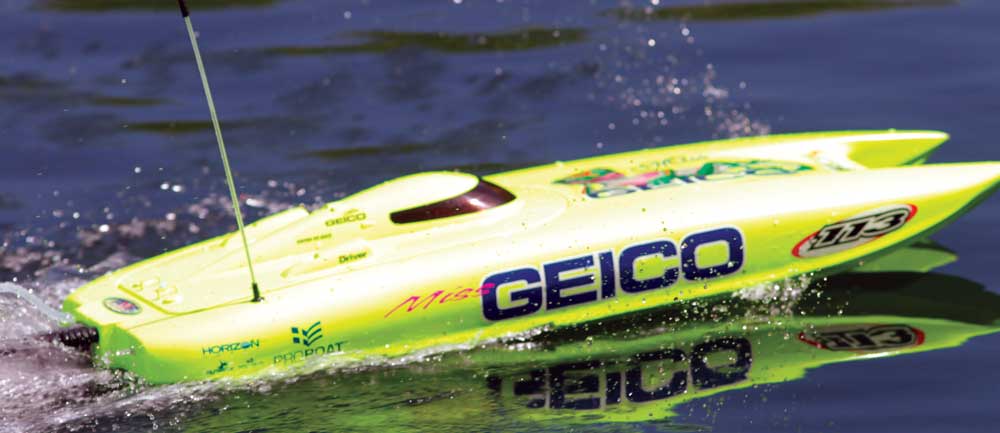Ensuring Perfect Radio Waves

The airplane and helicopter folks partake in a very strange ritual before they fly a new model for the first time. They’ll get a friend to help them perform what’s known as a range check. What this does is make sure that when you’re flying you have the proper control of your plane. If they lose signal it could mean anything from a moment of panic to a catastrophic crash. With boats we don’t have the same crash concerns, but no-one likes sending out the retrieval boat, or worse, throw the “cast of shame”. We’re going to walk you through some basic steps to make sure you have adequate signal strength.

Once you have completed your ground range check it doesn’t mean you’re totally in the clear on the water. Don’t just grip-it and rip-it when you first get on the water for the first time. Select a calm, clear area of water to make some easy test passes, this time with your antenna on the transmitter fully extended if applicable. If everything checks out its time to open the throttle and let ‘er eat.
While RC boating is a lot of fun and swimming is a lot of fun you don’t want to be swimming out after a dead RC boat. Performing regular range checks is a quick and easy way to help prevent signal losses, fades or interference. I think we’d all agree we’d much rather take some preventive steps ahead of time than risk having to see someone like Greg shore-side casting a fishing line out for a boat in a speedo. If that mental image isn’t enough to convince you to range check I don’t know what will!
Words: Scott Donaldson
 RC Boat Magazine The World's Leading Radio Control Boating Magazine
RC Boat Magazine The World's Leading Radio Control Boating Magazine
